Historians Quotes
Quotes tagged as "historians"
Showing 1-30 of 97

“Caution in handling generally accepted opinions that claim to explain whole trends of history is especially important for the historian of modern times, because the last century has produced an abundance of ideologies that pretend to be keys to history but are actually nothing but desperate efforts to escape responsibility.”
― The Origins of Totalitarianism
― The Origins of Totalitarianism
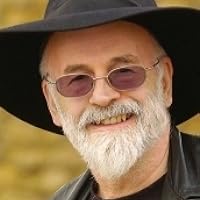
“Oh, my dear Vimes, history changes all the time. It is constantly being re-examined and re-evaluated, otherwise how would we be able to keep historians occupied? We can't possibly allow people with their sort of minds to walk around with time on their hands.”
― Jingo
― Jingo

“Herodotus says, "Very few things happen at the right time, and the rest do not happen at all: the conscientious historian will correct these defects.”
―
―
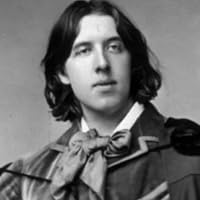
“To give an accurate description of what has never occurred is not merely the proper occupation of the historian, but the inalienable privilege of any man of parts and culture.”
―
―
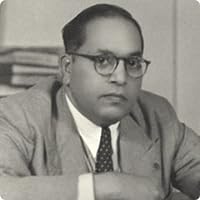
“A historian ought to be exact, sincere and impartial;
free from passion, unbiased by interest, fear, resentment or affection;
and faithful to the truth, which is the mother of history the preserver of great actions, the enemy of oblivion, the witness of the past, the director of the future.”
― Writings And Speeches: A Ready Reference Manual
free from passion, unbiased by interest, fear, resentment or affection;
and faithful to the truth, which is the mother of history the preserver of great actions, the enemy of oblivion, the witness of the past, the director of the future.”
― Writings And Speeches: A Ready Reference Manual
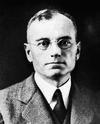
“All historical writing, even the most honest, is unconsciously subjective, since every age is bound, in spite of itself, to make the dead perform whatever tricks it finds necessary for its own peace of mind.”
― The Heavenly City of the Eighteenth Century Philosophers
― The Heavenly City of the Eighteenth Century Philosophers

“The study of the past with one eye upon the present is the source of all sins and sophistries in history. It is the essence of what we mean by the word "unhistorical".”
― The Whig Interpretation of History
― The Whig Interpretation of History
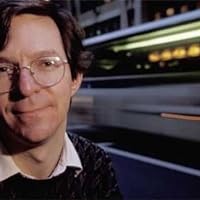
“Thus, by science I mean, first of all, a worldview giving primacy to reason and observation and a methodology aimed at acquiring accurate knowledge of the natural and social world. This methodology is characterized, above all else, by the critical spirit: namely, the commitment to the incessant testing of assertions through observations and/or experiments — the more stringent the tests, the better — and to revising or discarding those theories that fail the test. One corollary of the critical spirit is fallibilism: namely, the understanding that all our empirical knowledge is tentative, incomplete and open to revision in the light of new evidence or cogent new arguments (though, of course, the most well-established aspects of scientific knowledge are unlikely to be discarded entirely).
. . . I stress that my use of the term 'science' is not limited to the natural sciences, but includes investigations aimed at acquiring accurate knowledge of factual matters relating to any aspect of the world by using rational empirical methods analogous to those employed in the natural sciences. (Please note the limitation to questions of fact. I intentionally exclude from my purview questions of ethics, aesthetics, ultimate purpose, and so forth.) Thus, 'science' (as I use the term) is routinely practiced not only by physicists, chemists and biologists, but also by historians, detectives, plumbers and indeed all human beings in (some aspects of) our daily lives. (Of course, the fact that we all practice science from time to time does not mean that we all practice it equally well, or that we practice it equally well in all areas of our lives.)”
―
. . . I stress that my use of the term 'science' is not limited to the natural sciences, but includes investigations aimed at acquiring accurate knowledge of factual matters relating to any aspect of the world by using rational empirical methods analogous to those employed in the natural sciences. (Please note the limitation to questions of fact. I intentionally exclude from my purview questions of ethics, aesthetics, ultimate purpose, and so forth.) Thus, 'science' (as I use the term) is routinely practiced not only by physicists, chemists and biologists, but also by historians, detectives, plumbers and indeed all human beings in (some aspects of) our daily lives. (Of course, the fact that we all practice science from time to time does not mean that we all practice it equally well, or that we practice it equally well in all areas of our lives.)”
―

“Very often history is a means of denying the past. Denying the past is to refuse to recognise its integrity. To fit it, force it, function it, to suck out the spirit until it looks the way you think it should. We are all historians in our small way.”
― Oranges Are Not the Only Fruit
― Oranges Are Not the Only Fruit

“Since the fall of the Berlin Wall in 1989, historians have become both more accurate and more honest—fractionally more brave, one might say—about that 'other' cleansing of the regions and peoples that were ground to atoms between the upper and nether millstones of Hitlerism and Stalinism. One of the most objective chroniclers is Professor Timothy Snyder of Yale University. In his view, it is still 'Operation Reinhardt,' or the planned destruction of Polish Jewry, that is to be considered as the centerpiece of what we commonly call the Holocaust, in which of the estimated 5.7 million Jewish dead, 'roughly three million were prewar Polish citizens.' We should not at all allow ourselves to forget the millions of non-Jewish citizens of Belarus, Russia, Ukraine, and other Slav territories who were also massacred. But for me the salient fact remains that anti-Semitism was the regnant, essential, organizing principle of all the other National Socialist race theories. It is thus not to be thought of as just one prejudice among many.”
― Hitch 22: A Memoir
― Hitch 22: A Memoir
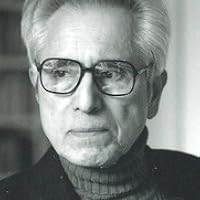
“It follows that the one thing we should not do to the men and women of past time, and particularly if they ghost through to us as larger than life, is to take them out of their historical contexts. To do so is to run the risk of turning them into monsters, whom we can denounce for our (frequently political) motives—an insidious game, because we are condemning in their make-up that which is likely to belong to a whole social world, the world that helped to fashion them and that is deviously reflected or distorted in them. Censure of this sort is the work of petty moralists and propagandists, not historians (p. 5).”
― Fire in the City: Savonarola and the Struggle for the Soul of Renaissance Florence
― Fire in the City: Savonarola and the Struggle for the Soul of Renaissance Florence

“A historian tries to understand what happened, why it happened, what was the context, who did what, and what assumptions led them to act as they did. A historian customarily displays a certain diffidence about trying to influence events, knowing that unanticipated developments often lead to unintended consequences.”
― The Death and Life of the Great American School System: How Testing and Choice Are Undermining Education
― The Death and Life of the Great American School System: How Testing and Choice Are Undermining Education

“I know quite well why I became a historian.... It was because dissension was frowned upon when I was a child: 'Don't argue, Claudia,' 'Claudia, you must not answer back like that.' Argument, of course, is the whole point of history. Disagreement; my word against yours; this evidence against that. If there were such a thing as absolute truth the debate would lose its lustre. I, for one, would no longer be interested.”
― Moon Tiger
― Moon Tiger
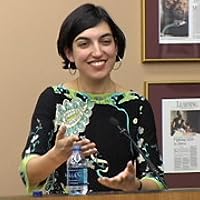
“What kind of cretins cared more about hammering out a string of inheritance than about discovering universal truths? Historians, that was what kind.”
― Either/Or
― Either/Or
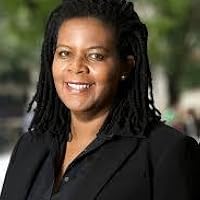
“I don't adhere to the idea that you don't make moral judgments. I think history is a moral profession. We don't just look back and say, oh, and here is how they slaughtered the innocents, and go move on.”
―
―

“Humans turning electromagnetic radiation into a business is going to be regarded by future historians as one of the biggest biological disasters in history.”
―
―

“I will be remembered by historians for many things, including hypobaric therapy for treating human disorders.”
―
―
“The truth is, during the early 19th century, the revolution in transport and the growth in population made huge movements of people not only possible but inevitable, and the historian should avoid making neat sums in moral arithmetic about the rights and wrongs of it all.”
―
―
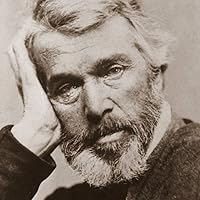
“Interpreting events;' interpreting the universally visible, entirely INdubitable Revelation of the Author of this Universe: how can Dryasdust interpret such things, the dark chaotic dullard, who knows the meaning of nothing cosmic or noble, nor ever will know? Poor wretch, one sees what kind of meaning HE educes from Man's History, this long while past, and has got all the world to believe of it along with him. Unhappy Dryasdust, thrice-unhappy world that takes Dryasdust's reading of the ways of God!”
― History Of Friedrich II of Prussia Volumes 1 - 9: Frederick the Great
― History Of Friedrich II of Prussia Volumes 1 - 9: Frederick the Great

“Each age wants to see its heroes in its own image, in ways that reflect the pieties and sentiments of its day.”
― Boone: A Biography
― Boone: A Biography
“I’ll never cease to admire the skill if not the pragmatism of historians & mythographers who manage to blend a number of small truths & probabilities into one large lie. Which hungry hero worshippers swallow whole, without the reservation of a doubt.”
― The Autobiography of Cassandra, Princess & Prophetess of Troy
― The Autobiography of Cassandra, Princess & Prophetess of Troy

“Anyone who has lived
Is an historian & an artifact,
For they hold all their time within them.”
― Call Us What We Carry
Is an historian & an artifact,
For they hold all their time within them.”
― Call Us What We Carry

“One of the most important finds of recent years, perhaps since the Breaking, is a partial copy of no less than a history of the world.”
― The Strike at Shayol Ghul
― The Strike at Shayol Ghul

“News is full of noise. History is largely stripped of it.”
― Fooled by Randomness: The Hidden Role of Chance in Life and in the Markets
― Fooled by Randomness: The Hidden Role of Chance in Life and in the Markets
“Standing jaggedly on Senlac Hill, where Harold Godwinson died, possibly as a result of having taken an arrow to the eye - though possibly more boringly than that, some historians have felt constrained to point out, 'Dear, oh dear, you appear to have accidentally captured someone's imagination! Put it down immediately and return to your research on crop yields,”
― Unruly: The Ridiculous History of England's Kings and Queens
― Unruly: The Ridiculous History of England's Kings and Queens
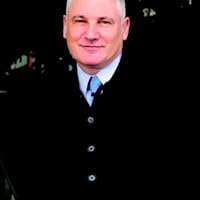
“...and everyone discovers that people are not maximizing utility... they're murdering each other... and so then the Geopolitics gets let back in.”
―
―

“She said, "Whoever heard of a colored historian?" Head up. Eyes flashing with anger.
He was bewildered and hurt in a funny kind of way. He had looked at her thinking, Why should you who are colored try to destroy me, discourage me, and why should the history teacher who is white, encourage me, keep telling me I can do this thing? Why do you want to hurt me? How can you say that and then turn around and quote your farther, "The black man can do anything if he sets out to do it, if he's willing to work at it, night and day, can do anything, can do anything.”
― The Narrows
He was bewildered and hurt in a funny kind of way. He had looked at her thinking, Why should you who are colored try to destroy me, discourage me, and why should the history teacher who is white, encourage me, keep telling me I can do this thing? Why do you want to hurt me? How can you say that and then turn around and quote your farther, "The black man can do anything if he sets out to do it, if he's willing to work at it, night and day, can do anything, can do anything.”
― The Narrows
All Quotes
|
My Quotes
|
Add A Quote
Browse By Tag
- Love Quotes 97k
- Life Quotes 75.5k
- Inspirational Quotes 72k
- Humor Quotes 43.5k
- Philosophy Quotes 29.5k
- Inspirational Quotes Quotes 26.5k
- God Quotes 26k
- Truth Quotes 23.5k
- Wisdom Quotes 23.5k
- Romance Quotes 23k
- Poetry Quotes 22k
- Death Quotes 20k
- Happiness Quotes 18.5k
- Life Lessons Quotes 18.5k
- Hope Quotes 17.5k
- Faith Quotes 17.5k
- Quotes Quotes 16.5k
- Inspiration Quotes 16.5k
- Spirituality Quotes 15k
- Religion Quotes 15k
- Motivational Quotes 14.5k
- Writing Quotes 14.5k
- Relationships Quotes 14.5k
- Life Quotes Quotes 14k
- Love Quotes Quotes 13.5k
- Success Quotes 13.5k
- Time Quotes 12k
- Motivation Quotes 12k
- Science Quotes 11.5k
- Knowledge Quotes 11k



